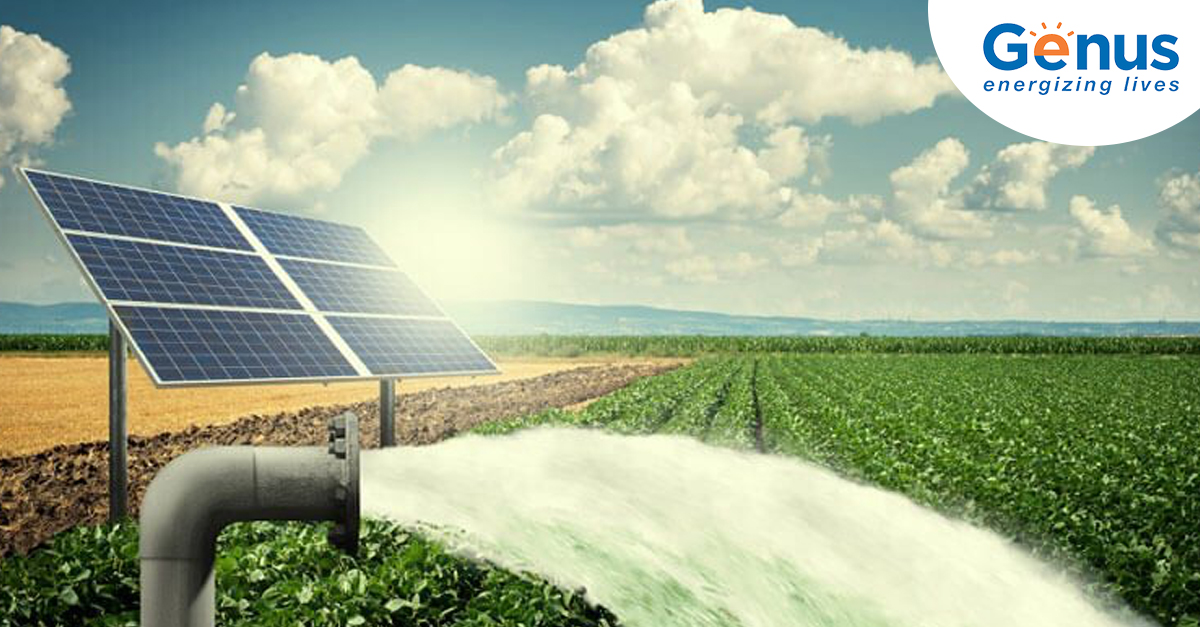
One of the lesser known facts about conventional energy sources is that it takes a lot of water to produce and distribute. Because of this limitation, energy from fossil fuels takes a toll on the crucial water reserves of our country, apart from being polluting and unsustainable in nature.
Especially, if you live in a dry area where water is scarce, and the sun beats down mercilessly throughout the year, you need to consider shifting to solar energy.
Read on to know how solar panels save water while powering your house or workplace effectively.
1. Solar Panels Do Not Make Use of Water for Power Generation
In a conventional diesel plant, a vast amount of water is used for cooling. This practice leads to a huge wastage of water resources. Meanwhile, solar panels require no water for energy production or cooling. So, how much water do solar panels save? As per a study from the International Renewable Energy Agency, solar panels can produce a unit of electricity with as little as 1/200th of the water requirement of a power plant.
Also Read: How to Reduce Electricity Bill with Genus Inverters?
2. Floating Solar Energy Saves Water
Floatvoltaics/ floating solar farms are becoming increasingly common. When water bodies are covered partially with solar panels for producing clean electricity, there is also the benefit of reduced water evaporation. Notably, floating solar farms have been shown to reduce evaporation by around 70%.
Also Read: How Can Solar Panels Benefit the Farming Scene in India?
3. Solar Panels Help Improve Water Management and Efficiency
Facilities that treat water to make it safe for drinking generally use large amounts of electricity, which is generated by power plants that use water (ironically) intensively for operation. However, with the installation of solar panels, such water treatment facilities need to depend less on power plants (or water, indirectly). Plus, the money they save by depending less on power plants can be invested in advanced water management and efficiency technologies.
Also Read: A Simple Guide to Smart Inverter Technology
4. Solar Panel Powered Electric Cars Use Less Water Than Their Gasoline Powered Counterparts
Eclectic cars fitted with solar panels will help you consume less water. This is because it takes around 3-6 gallons of water to make a gallon of gasoline. Even environment-friendly alternatives, such as biofuels, are produced with the use of a lot of water. Hence, if your goal is to save water, electric cars with solar panels are the best bet.
5. Capturing The Sun’s Energy Does Not Require Any Water
Water is needed in large quantities for the extraction and processing of fossil fuels. For processes such as fracking and mining, companies use billions of gallons of water unnecessarily, just to produce a polluting and unsustainable form of energy. Even after the fracking process is done, refining and transporting the fuel requires loads of water that could have been used for better purposes.
Also Read: Top Ways to Protect Solar Panels During the Rainy Season
But how does solar energy reduce water usage? One of the biggest advantages of solar panels is that they require absolutely no water once the panels are manufactured and installed. While it does take some water to make solar panels, the amount of water spent is significantly less than what is spent by fossil fuel companies, especially due to recycling and high efficiency processes. For instance, some projects, which are already underway, can recycle up to 70% of the water they use for operations.
Also Read: Why Solar Farms in the Ocean can Save the Planet?
Conclusion
Whichever way you look at it, solar power is clean, renewable, and helps you save water. As a result, your home or company can make use of it to produce energy in a manner that does not deplete an essential resource like water.
So, if you want to invest in solar panels that will save you tons of water in the long run, or want to know more about how solar energy saves water, reach out to us.
